Senator Manchin’s announcement that he will not support the Build Back Better Act is a major blow to West Virginia’s families, workers, small businesses, and state economy. Failing to pass a social infrastructure package and an extension of the improved Child Tax Credit – including the monthly payments that are helping West Virginia families afford the rising costs associated with raising kids – is not an option. Those very families have been conveying that truth to the Senator and his staff for months.
Senator Manchin now has a choice to make: Will he side with the ultra-wealthy and corporations that are still reaping record windfalls even as we face a new and dangerous phase of the pandemic, or will he side with West Virginia’s children and families by returning to the negotiating table to find a path forward? This is not hyperbole – with the enhanced Child Tax Credit expiring this month, 346,000 West Virginia kids will see their household incomes reduced, including 50,000 who will be driven into poverty or deeper poverty. That is merely one example of how inaction will harm West Virginians.
It is difficult to square Senator Manchin’s recent comments with the realities faced by people on the ground in West Virginia. The current status quo does far too little to invest in the needs of families and working people. We face unacceptable levels of child poverty, an aging population with poor health outcomes, a lack of child care, and too many workers in low-paying jobs who have difficulties making ends meet. The Build Back Better Act that Senator Manchin opposes would address all of those challenges head-on.
We call on Senator Manchin to return to the negotiating table to find a solution that prioritizes his constituents by extending the enhanced Child Tax Credit, passing paid leave, investing in child care and health care, and tackling the climate crisis. Our families are counting on him.
Read our full statement here.
Read more on this development from WVCBP executive director Kelly Allen in a recent article featuring her insight here.
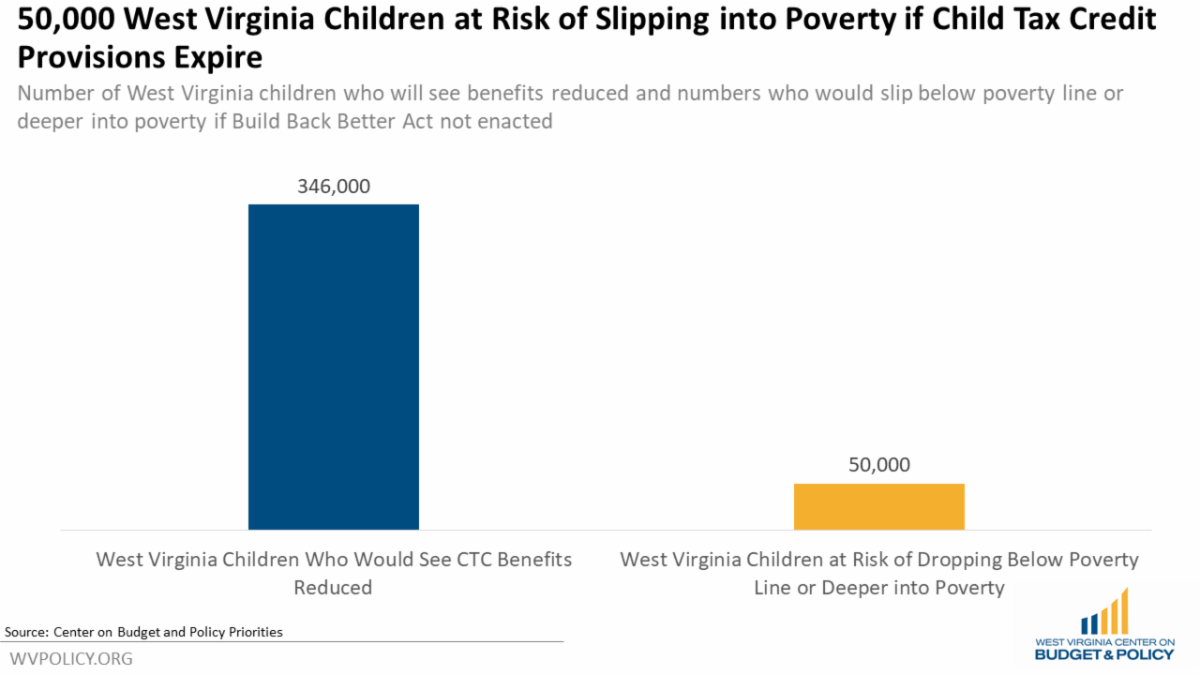
Since July 2021, most households with children have received monthly enhanced Child Tax Credit payments of $250- 300 per child. However, the enhanced Child Tax Credit was temporary and will expire at the end of 2021 unless Congress acts to extend it through the Build Back Better Act.
If you’ve received monthly Child Tax Credit payments, we’d love to hear how they’ve been helping your family and how your family will be impacted if you no longer receive them in 2022.
Join us in our advocacy by completing our survey here.
Learn more about what’s at stake if the enhanced Child Tax Credit expires in our blog post here or in a recent article featuring our data here.
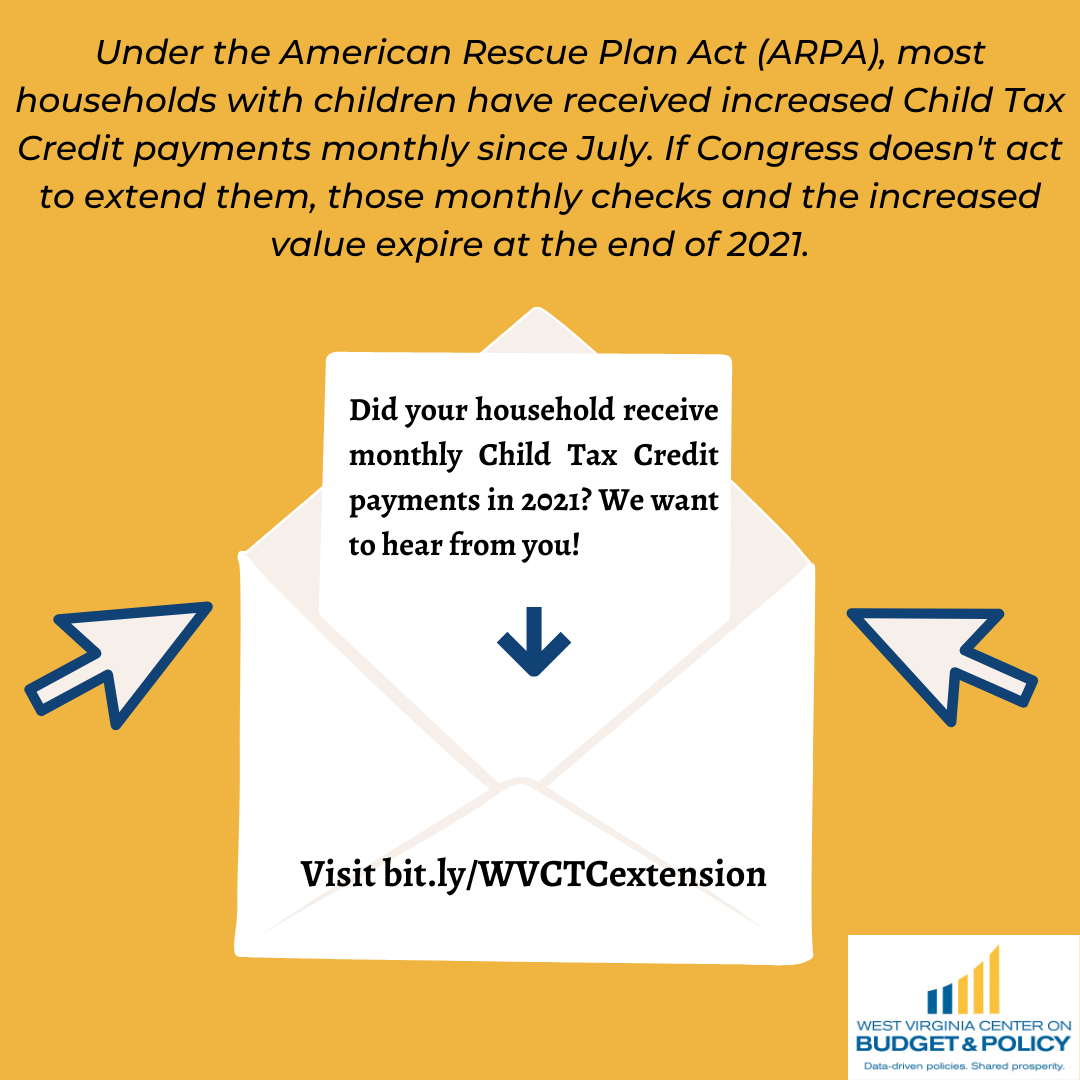
During the most recent legislative interim session, the Joint Committee on Finance proposed legislation to — yet again — cut the state’s already low severance tax. This would prove costly and harmful to our state budget.
This announcement to further cut the severance tax comes on the heels of a sizable severance tax cut passed in 2019, which lowered the severance tax rate on steam coal from five percent to three percent, at a cost of $64 million annually. While the 2019 tax cut was targeted to the steam coal industry in an unsuccessful effort to give the industry a boost during tough times, this new proposal would cut severance taxes across the board, reducing the rate on metallurgical coal, natural gas, and oil from five percent to three percent.
According to documents from the State Tax Department, energy prices would have to more than double from the pre-pandemic levels just to maintain previous revenue levels if the severance tax is cut from five percent to three percent for coal, natural gas, and oil.
This additional proposed severance tax cut would mean West Virginia would miss out on hundreds of millions of much needed new revenue (over $270 million according to estimates from the tax department) that it could otherwise use to address outstanding needs or make new — and needed — investments.
Learn more in Sean’s full blog post.
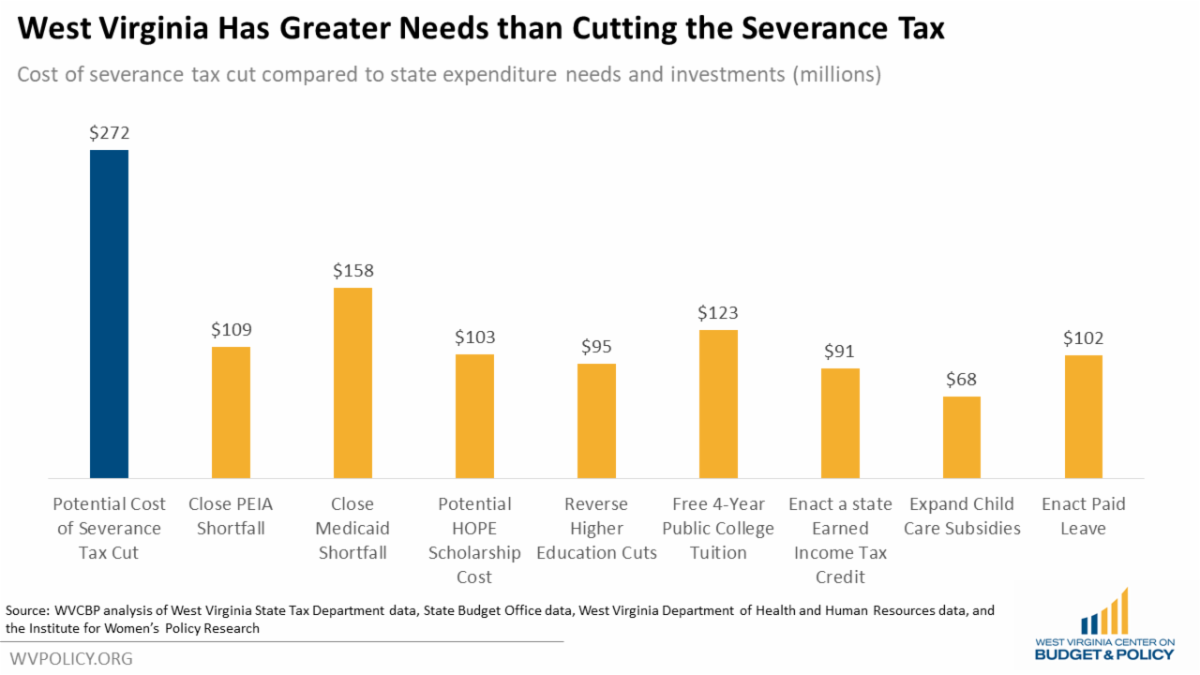
Join us for our 9th annual Budget Breakfast!
Each year, the WVCBP holds this fundraising event to provide analysis of the Governor’s proposed budget. You’ll hear from our executive director, Kelly Allen, our senior policy analyst, Sean O’Leary, and our keynote speaker, Brian Elderbroom of Justice Reform Strategies.
Please find further event details below. You can purchase a ticket for the event here.
WHAT: WVCBP’s 9th Annual Budget Breakfast
WHEN: January 21, 2022. Breakfast will be available starting at 7:30am. The WVCBP’s analysis of the Governor’s 2023 proposed budget will begin at 8am, followed by keynote speaker presentation and time for Q&A.
WHERE: Charleston Marriott Town Center (200 Lee Street East, Charleston, WV 25301)
WHO:
PLEASE NOTE: The cost of a single standard ticket is $50, but if you take advantage of our Early Bird Special (available to all who register by 12/31/21), you will receive $10 off.
We appreciate your support of the WVCBP and our work, and we hope to see you in January!
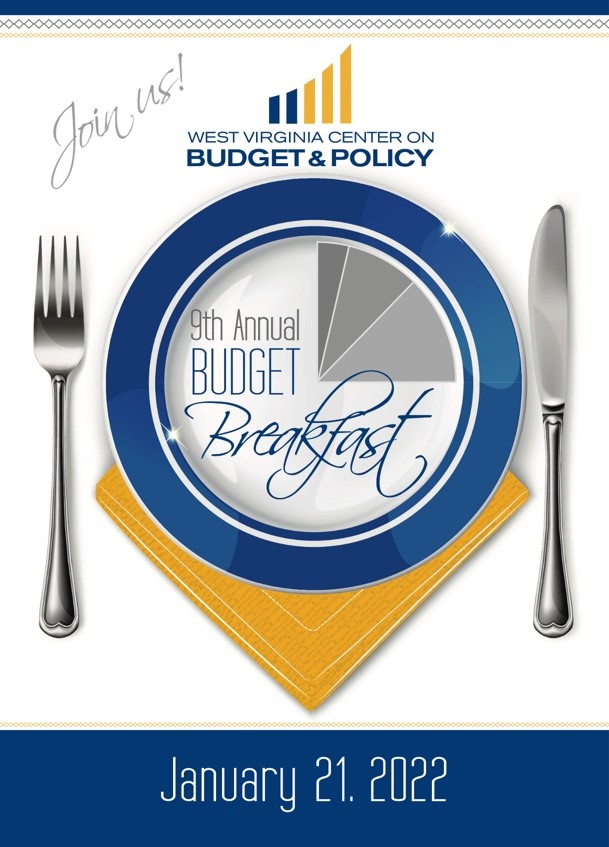
West Virginia is home to one of the most strained foster care systems in the country. Over 7,000 West Virginia children currently live in foster care, and in 2019 West Virginia removed 14 out of every 1,000 children from their homes, more than quadruple the national average. A recent article provides further insight into the status of the West Virginia foster care system, as well as changes that children’s advocates in the state are hoping to see in 2022. Excerpt below:
Children’s advocates said they are hoping for major changes to the state’s foster-care and child-protective services systems in the new year.
Recent investigations have highlighted a strained foster-care system, largely because of the opioid crisis and lack of resources.
Marissa Sanders, director of the West Virginia Foster, Adoptive, and Kinship Parents Network, said while state lawmakers recently formed a bipartisan child-welfare caucus, she has since seen little movement on the issue.
Sanders would like the state to increase accountability and data collection on how many foster parents are in the state, and what their capacity to care for children is.
Sanders added foster care is designed to be a temporary intervention, and she believes the state should shift toward a model which increases partnership between birth parents and foster parents to strengthen a child’s web of support.
Read the full article.
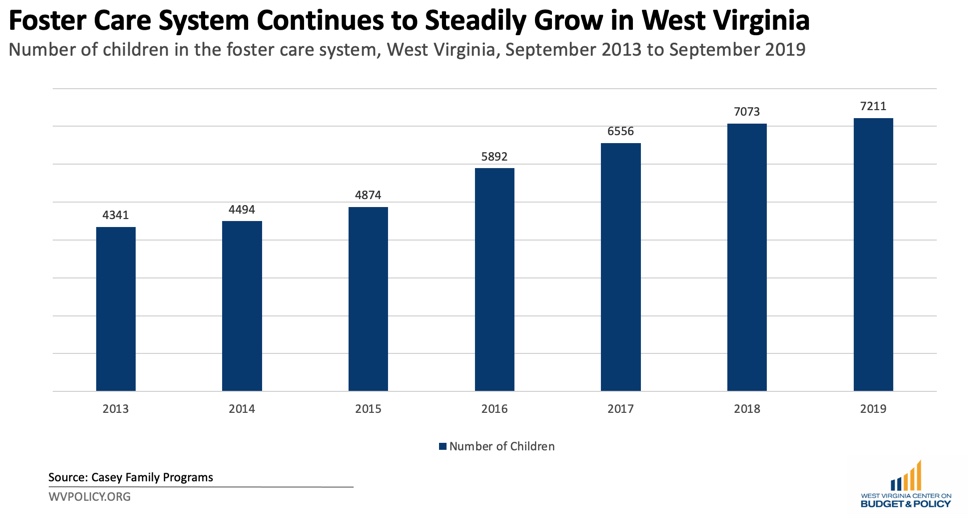
The WVCBP’s Elevating the Medicaid Enrollment Experience (EMEE) Voices Project seeks to collect stories from West Virginians who have struggled to access Medicaid across the state. Being conducted in partnership with West Virginians for Affordable Health Care, EMEE Voices will gather insight to inform which Medicaid barriers are most pertinent to West Virginians, specifically people of color.
Do you have a Medicaid experience to share? We’d appreciate your insight. Just fill out the contact form on this webpage and we’ll reach out to you soon. We look forward to learning from you!
You can watch WVCBP’s health policy analyst Rhonda Rogombé and West Virginians for Affordable Health Care’s Mariah Plante further break down the project and its goals in this FB Live.
